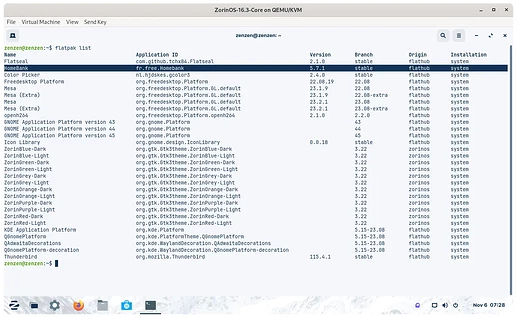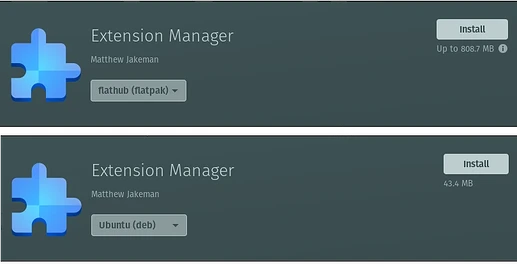I think that's my fault; I promised I would talk more about this whole thing but I got distracted with other things... Let's see if I can make it brief but informative:
Debian and any distribution derived from it, such as Ubuntu and by extension Zorin OS, uses the so-called Debian package format. This "package" is basically an archive, like a zip file, that includes the executable itself along with some metadata and various auxiliary files to help with housekeeping. Part of that metadata is a list of dependencies, meaning other software that must be already installed in the system. If you try to install something like Thunderbird, it will look at your system to check if you have all the dependencies that it needs to run properly, and it will install whichever ones are missing.
Where does Debian install things like Thunderbird or whatever dependencies it needs? From so-called software repositories, which you can think of as being like the Google Play Store for Android. It's a place where software for your particular distribution exists at a particular version. For example, Thunderbird is available at version 115 in the Zorin OS 17 repositories, while Debian 12 has the version 128.
So, how come that neither of them have the latest 138? Well, Debian is designed with stability in mind and it goes through a lot of trouble to check that the available software is stable and it works properly all around. Once everything is tested properly and is ready for release, the software repositories are frozen so that whatever versions are available at the time of release stay that way. This doesn't mean that there aren't any updates; security updates are still applied, but application versions are not updated so frequently due to the risk of introducing bugs or conflicts with existing software.
This is where other package formats come in. Flatpaks and Snaps work in a very similar way to what I just described, but these formats have their own set of libraries that only they can access, called a "runtimes". This solves the problem of potentially introducing conflicts with important system libraries and this allows you to install whichever version of Thunderbird you want (usually the latest one). If a new version of Thunderbird is releases tomorrow and it needs different libraries, a new runtime is installed.
Additionally, Flatpaks create an environment around the application to prevent it from reading files from the rest of the system. This is similar to how mobile apps work in Android for example, where you need to assign them permissions for things like using the camera or whatever. Flatseal is dedicated program that you can install to manage Flatpak's permissions.
And that's what happened here. You installed Thunderbird as a Flatpak and that created its own profile directory. The imports probably failed because of lack of permissions. You then installed the Debian package, which you naturally thought would be able to read the profile you just took the time to set up, but because of the isolation layer it thought this was a fresh installation.
The trick with the symbolic links is just a hack around this limitations: smoke and mirrors, nothing more. Obviously, not a good solution long term, and also an important point to bring up which is try to not mix and match different formats.
Personally, I prefer and recommend Debian packages whenever possible. They are much more efficient and less prone to cause issues of any kind. And especially for people new to Linux this type of thing can create a lot of friction and frustration, as we've seen many times in the forum.
I very much rather have someone complain about an outdated, but functional, version of Thunderbird than complain about hours of wasted time trying to get it to work.
Another downside about Flatpaks is that they tend to duplicate a lot of those system libraries and they take a lot more space. For example, here's an old screenshot where you can see there are three runtimes installed at the same time (the GNOME Application Platform versions 43, 44 and 45):
And the size difference:
So, just like with everything else, it's all about pros and cons. The drive space might not be a big deal but if you have a smaller laptop for travelling, like I do with a 32GB Chromebook, Flatpaks are not the best option for me. Or, if I need to install something quickly, downloading an entire runtime on a slow connection can be very panful:
An interesting thread about this whole discussion:
Ok, now it's my turn to go to the sauna ![]()

